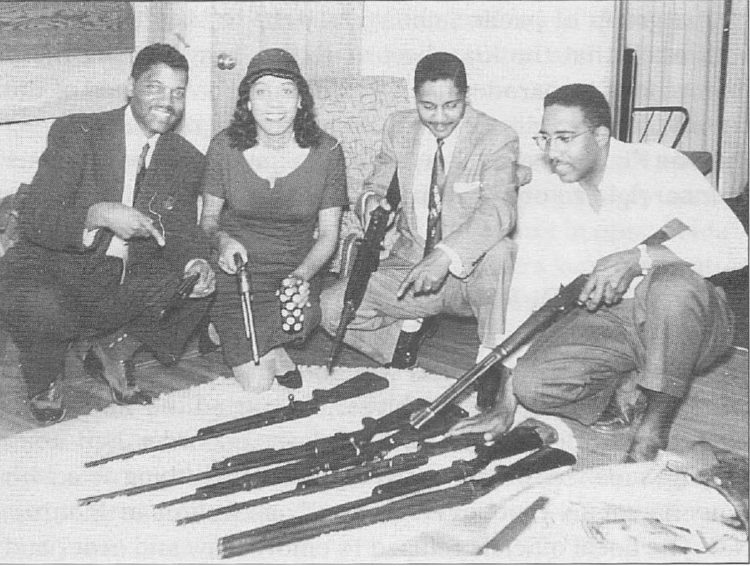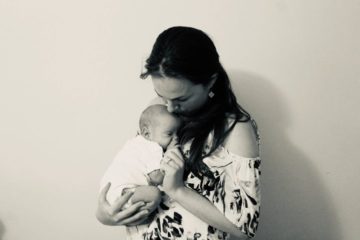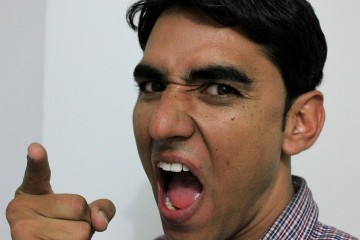Gun Rights: Martin Luther King, Jr. vs. John Lewis

Pretty much everyone knows who Martin Luther King Jr. is, but John Lewis is a little less familiar.
Lewis has been a US Congressmen in my part of Georgia since 1987. He was also one of the major leaders of the Civil Rights movement – one of the few that are still with us in fact. He was a leader in the Nashville Sit-ins, the Freedom Rides, the Student Nonviolent Coordinating Committee, the Montgomery Bus Boycott, the March on Washington, and the Selma marches. Lewis has endured hardship, was jailed, and beaten on numerous occasions in his pursuit of justice and equality for American blacks – all while remaining courageously true to his personal philosophical belief in nonviolence. I don’t think it would be an exaggeration to call him a living national treasure.
That doesn’t mean he is perfect though.
Earlier this summer, in the wake of a mass killing at an Orlando nightclub, Congressman John Lewis, led a sit-in on the floor of the US Congress to push for more federal gun control legislation – specifically advocating that those who are on the no-fly list due to suspicion of terrorism not be allowed to buy guns (you can get put on the suspicion of terrorism no-fly list for things like criticizing the president, questioning the narrative of 9/11, having a similar name to someone else, refusing to spy for the FBI, a government clerical error, being suspected of some other non-terroristic crime, making controversial social media posts, being related or associated to someone who is already on the list, or a regular person nominates you for the list because you’re “suspicious” – see HERE and HERE).
This seems very sensible to a lot of people. But for people with a longer memory like Lewis, it shouldn’t.
He is old enough to remember, better than most, a century where governments murdered over a quarter of a billion of their own people – horrors that were made possible by governments compiling lists of their own people like the no-fly list that deprive human beings of their rights without due process, without knowing that they are accused, what they are being accused of, who their accusers are, or how to defend themselves from the accusations. This murder by government that took more lives in the last century than all the wars combined was also made possible by three other things: the concentration of power, a mass surveillance apparatus, and disarming the population.
Lewis is certainly old enough to remember how important access to guns has been in the preservation of freedom and the advancement of civil rights.
Black Americans certainly did not take their civil rights at the point of a gun, through guerilla warfare, or a violent revolution, but it was access to guns and the willingness to defend themselves with deadly force that created the space which made the Civil Rights Movement possible. This might be news to a lot of people today, but it wouldn’t be to someone who lived through it. Like most of American history, the Civil Rights era, was a particularly dangerous time to be a black person in the south – especially if you were participating in the Civil Rights Movement by marching, sitting, riding, or even voting. Even if you weren’t doing these things, you could be considered guilty by association. Men, women, and children were beaten, hung, and shot. Their homes and churches were firebombed – sometimes with them in it. Black people, young and old, responded as people tend to do in these situations; they took steps to keep their families, themselves, and their neighbors alive and safe. They kept their guns handy and organized to defend each other and each other’s homes. They armed and organized themselves to protect civil rights leaders like Martin Luther King, Jr. and John Lewis.
The non-violent movement to gain freedom and full citizenship for black people that Lewis so famously helped lead would not have survived without black people’s use of guns to defend themselves and their families. Its leaders and their families would have been killed and its participants would have been killed or persuaded to “get back in their place.” Though it may sound strange to plenty of people today, many participants and leaders in the civil rights movement would have seen no contradiction in talking to you about being a part of this non-violent movement while they cleaned their shotgun, their handgun, or even their semi-automatic rifle. They might even have a story or two to tell you of how they have used it to defend their families from attacking nightriders or lynch mobs. It may sound strange to us today, but these people knew in very real ways that the effective and important non-violent struggle was made possible and given the space to grow because of the threat of gunfire.
Martin Luther King, Jr. was one of these people. Most people know that he was a strong advocate and practitioner of non-violent resistance, but he was also a practitioner of armed self-defense. He had so many guns in his house that an advisor to King described his house as an arsenal – an arsenal for self-defense. After the bombing of his home in January of 1956, King also applied for a concealed carry permit. He was denied the permit that he had every right and reason to have. No one knows why King was denied the permit, but its probably safe to assume that this right was denied without due process because his name was on some formal or informal version of his day’s no-fly list (See Charles Cobb Jr.’s This Nonviolent Stuff Will Get You Killed: How Guns Made the Civil Rights Movement Possible, pg 7).
Keeping black people unarmed so that they can be oppressed has been an ongoing theme in American history. Before the Civil War, being caught with a gun was almost always a death sentence for a black person in the south. After the Civil War things often weren’t much different. Access to guns was intentionally limited for black people through licensing and permitting laws. Another tactic was to not allow black people into a militia and then raid their homes and seize their guns on the premise that the Second Amendment only applies to militia members (Cobb, pg 45).
As we look back in history it is hard not to see how Congressman Lewis’ position on gun regulation today would have deprived his fellow black Americans as well as the Civil Rights Movement of one of the key things they both needed to survive – an armed self-defense. As we all look for solutions to the mass shootings and criminal violence that trouble our world, perhaps at some point we will begin to remember how Americans in the past effectively organized and equipped themselves to face a far more pervasive threat to their lives and their liberties. Perhaps we will then remember how damaging and oppressive to human life and the cause of justice legislating away those rights can be.
– – –
If you would like to learn more about this topic check out:
- Charles Cobb Jr.’s This Nonviolent Stuff Will Get You Killed: How Guns Made the Civil Rights Movement Possible.
- NPR’s Audio and Written Interview with Charles Cobb Jr.
- Nicholas Johnson’s Negroes with Guns: The Black Tradition of Arms
- Charles Cobb Jr.’s article in Salon.com
- Reason.com’s Gun Rights Benefited Black Americans During the Civil Rights Movement and Still Do


